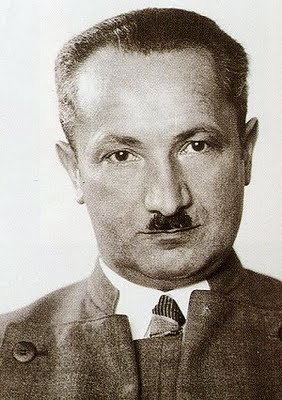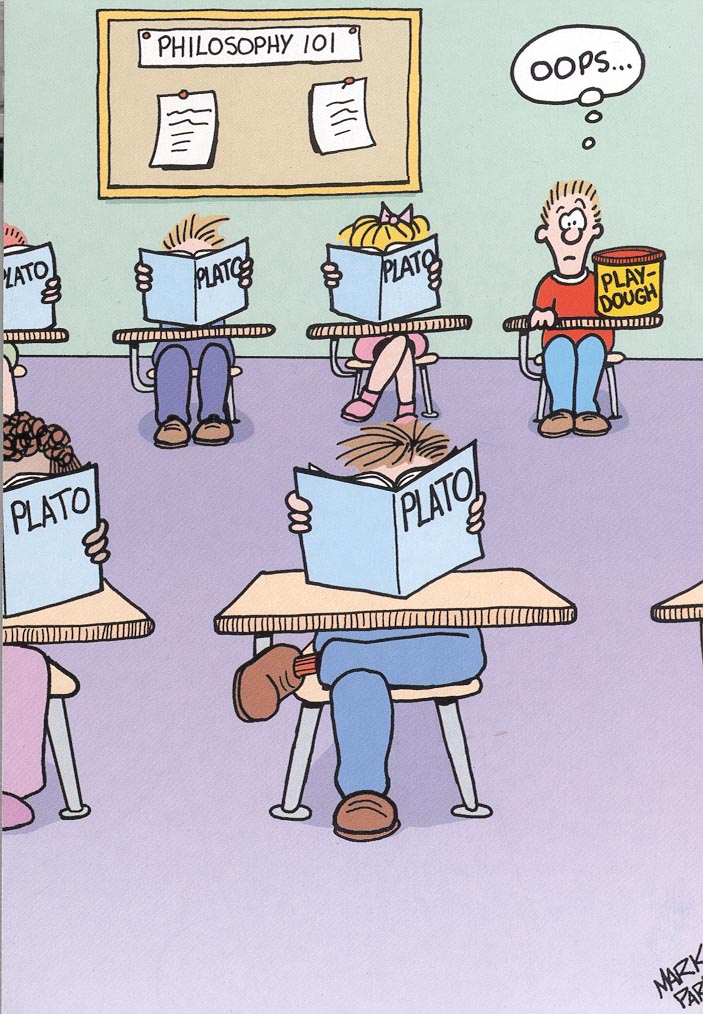
The Philosophy Bistro is a leader in the “slow thought” movement.
If you have read Daniel Kahneman’s Thinking, Fast and Slow, let me give it a plug here: it’s a fun and educational read for anyone interested in how the human mind works. Kahneman’s main innovation (in collaboration with his research partner Amos Tversky) was to show that normal human beings are vastly more irrational than was previously thought. Into the 1970s, social scientists – and not just economists – still assumed that under standard conditions, most adults acted rationally most of the time. Through a series of clever experiments, Kahneman and Tversky demonstrated that this is far from the case. Here’s one example.
Imagine that Bruce Springsteen is coming to your town. (Odds are good that this is true.) And let’s say that you consider going. You think about how much you’re willing to pay for tickets, and decide that you’d spend $20 for a seat. This is simply a quantification of your preference. You’d rather listen to “Blinding By the Light” live than have that $20 still in your pocket. That is the current value of that experience to you.
But later that day you’re listening to the radio and the station’s having a contest and giving away a free ticket to tomorrow’s Springsteen concert to the winner. You pull over (do pull over, please), call in, and give the correct answer to the question, “What are the names of all of the US state capitals west of Los Angeles, California?” (Answer at bottom of this post.) Congratulations! You’re the proud new owner of a free ticket to see Bruce. You drive right over to the stadium to pick it up.
And then you lose it. That’s what you get for having lunch at Denny’s. Those scrambles take up the whole table. You shouldn’t have had the ticket out in the first place, but it was so fun to show off. (Next time, come to the Bistro instead.) But you still want to go to the concert. And you were thinking about buying a ticket anyway. So, you check the prices again. But they’ve gone up. They must be selling out, and the venue’s trying to maximize their take as they supply dwindles. Are you willing to pay more than $20 to get your lost ticket back?
If you were a purely rational being, your answer should be, “No.” The same ticket was worth $20 to you earlier in the day. It ought to still be worth $20 to you now. But this is where what Kahneman and Tversky termed “loss aversion” comes in. The threat of losing something we already have makes us value it higher. The typical “loss premium” in their experiments came out to about 50%. That is, if you’re like most people, you would pay up to $30 to get back the ticket you lost, even though you would have only been willing to pay $20 for it to begin with.
This is a bug built into our systems, and it causes trouble. I used to see it working on space issues at colleges. Office shuffles could be maddeningly difficult because (a) professors had greater veto power than employees usually do, so you needed at least their tacit approval, and (b) that approval was hard to get because almost nobody was willing to give anything they valued up, at least easily. You could show someone her new office, which was nicer than her current space in every way that mattered to her – including the nice windows and its location near her colleagues and the cafeteria, but just enough off the main drag to provide a little quiet. But if it was 20 square feet smaller than her old office, she likely wouldn’t want to make the trade. Time and again, these discussions would ignore all the large gains and focus almost entirely on the small loss. I occasionally became frustrated because I was sure that the person I was working with was having trouble making a decision that would make them more satisfied in the long run because it felt so bad to give anything up. Many of these situations worked out eventually. Some didn’t. That’s life with loss aversion. And though I find it easier to see in others than in myself, I know I suffer from it too.
Things are even worse than I’ve made it sound, though, according to Kahneman. I’ve just given one example of human irrationality. His book is full of dozens, which he deploys to argue that mind can be thought of as two systems, which he terms simply “system 1” and “system 2.” Because the Bistro is a Philosophical venue, I’m going to ignore Kahneman’s cautions against reifying and romanticizing these systems (What else is Philosophy for?) and call them “the intuitive self” and “the reflective self.” The intuitive self is the one that acts instantly. It’s the you that reacts to an oncoming car by steering out of the way more quickly than your more deliberative decision-making process could function. The reflective self, meanwhile, is the one that thinks situations through in detail, that focuses intently, that calculates. So far, so good.
Here’s the thing: Your reflective self thinks it’s the one in charge. As the Civil War-era saying goes, “There’s nothing so like a god on earth than a general on a battlefield,” and that’s the way the reflective you thinks about itself. And why not? It’s so good at coming up with persuasive explanations for your behavior. But that’s part of the problem, as another Kahneman experiment demonstrated. They flashed participants a series of paired pictures, which they had them rate by comparative attractiveness. (Here’s one face. Here’s another. Which one was better looking?) The participants only got a glance, so this was their intuitive self at work. After they said “The first” or “The second,” the experimenter brought the preferred picture back out and asked why it was more attractive than the other one. With the added time, the reflective selves had no problem coming up with elaborate account of all the reasons for their choices. And at first glance this looks like a moment of harmony between the two systems: the intuitive self decides, the reflective self explains. It’s a perfect division of labor.
But it’s a sham. Or at least it can be. You see, half the time the experimenters brought back out the picture the participant hadn’t selected. (That is, the participant said, “The first picture is better looking,” and the experiment pulled back out the second one.) In most instances the participant did not catch the switch. (If this seems unlikely, click here.) And in those instances they had no trouble explaining their “choice”. That’s the big finding: your reflective self can make a case for a decision you didn’t make just as easily as it can for one you did. That’s not reasoning, that’s rationalizing. The reflective you isn’t the general it thinks it is. It’s a lawyer.
That’s what lawyers do, after all. Within certain broad boundaries, they aren’t expected to pursue the truth of the matter; they’re expected to give you the best chance to win. That’s why they say such ridiculous things sometimes. A lawyer is someone who will say, “I didn’t do it; and if I did to it, I had a very good reason.” (This is what trips up Thomas More with the jury in Wolf Hall.) Most of us have trouble being quite so mercenary about our relationship with the truth, at least in public. We expect others to expect us to say whether we did it or not, full stop. But a good defense attorney doesn’t want to make things that easy for the prosecution. His goal isn’t to uncover what happened, it’s to keep his client out of jail. And with the least bit of cover that everyday life away from courtrooms tends to provide us, that’s the approach most of us take most of the time. Unless we put the extra effort in, our natural inclination is to explain events to ourselves and others in ways that put us in the best possible light.
At least that’s what Kahneman’s work suggests. And though I don’t mean to be a complete cynic, I am inclined to agree. We’re capable of better. Often we do better. But without deliberate and skilled effort, this is our fate: to live with half the mind of a lawyer. And that’s a bit of a shame, given that we generally don’t think that much of those who have the whole thing. (Note: I kid because I love. When your father, brother, and wife are all lawyers, you hear a lot of lawyer jokes.)
Let me close with a question: Maybe your mind is neither a general nor a lawyer; so what is it?
Photo credit: Farrar, Straus and Giroux
Answer to radio call in question: Honolulu, Juneau, Olympia, Salem, Sacramento, and Carson City. (The California coast tends dramatically east around Santa Barbara, much more than your mind’s eye would probably lead you to believe. People who got the correct answer can redeem their Springsteen ticket here.)








 Some commentators have expressed surprise at Hegel’s fondness for metaphors involving owls. They haven’t studies this picture.
Some commentators have expressed surprise at Hegel’s fondness for metaphors involving owls. They haven’t studies this picture. Portrait of Cousin It as a Young Man.
Portrait of Cousin It as a Young Man.





